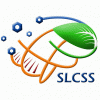The Ministry of Health is responsible for providing health services for all the citizens of the country. The goal is to provide a sufficient quality service to people in need of promotive, preventive, curative, rehabilitative, and palliative healthcare that would achieve potential health gains.
Sri Lanka Scientific Service officers are contributing to the health service by giving their scientific expertise in numerous ways. Research Officers, Biochemists, Chemists, Medical Physicists, Entomologists, Parasitologists, Scientific Officers, and Pharmaceutical Analysts represent the Sri Lanka Scientific Service at the Ministry of Health Nutrition and Indigenous Medicine.
Research Officers attached to the Medical Research Institute engage in rigorous studies spanning infectious diseases, treatment modalities, and preventive measures, with the potential to directly impact public health outcomes. They are contributing to research in diversified areas in the fields of Virology, Bacteriology, Parasitology, Rabies, Nutrition, Biochemistry, Immunology, Entomology, Molecular Biology, Pharmacology, Electron Microscopy, Toxicology, and Mycology
Biochemists in state hospitals perform high-performance tests, assist in diagnosis, and collaborate with health professionals. They develop new techniques, ensure diagnostic quality, manage laboratory operations, and perform technical validations. Chemists of Sri Lanka Scientific Service working in the Ministry of Health are attached to the Food Quality Control laboratories (FQCLs). The principal objective of these laboratories is to provide reliable test reports for the samples submitted by the authorized sampling officers, law courts, and other customers. Medical physicists play a crucial role in healthcare, applying physics principles to ensure the safe and effective use of radiation in medicine. In radiotherapy, they plan treatments, calculate doses, and conduct quality assurance to deliver precise radiation while protecting healthy tissues. They also maintain and optimize imaging technologies like CT, MRI, and PET, ensuring accurate diagnostics. Working closely with oncologists and radiologists, they improve treatment protocols and patient outcomes. Additionally, medical physicists engage in research to advance medical technology and ensure compliance with safety standards and regulations in medical facilities. Pharmaceutical Analysts in the National Medicines Quality Assurance Laboratory provide the technical support needed to operate the quality assurance system in Sri Lanka by monitoring the compliance of the drugs, devices, cosmetics, and borderline products concerning quality, safety, and efficacy by laboratory testing of samples at pre- and post-marketing stages and issuing recommendations based on findings. Scientific Officers at the toxicology laboratory of the Institute of Forensic Medicine and Toxicology belongs to Sri Lanka Scientific Service assist judicial medical officers and other legal authorities by providing valuable scientific evidence based on the results of the chemical analysis of autopsy samples and patient samples. Entomologists are providing technical expertise to control and eliminate vector-borne diseases in Sri Lanka. They are providing novel knowledge, expertise skills, and research-level experience for the field of entomology. Regional Malaria Officers (Anti-malaria campaign) were crucial in eliminating malaria in Sri Lanka. This role has now been restructured into Entomologist positions to enhance vector management and disease control expertise.
